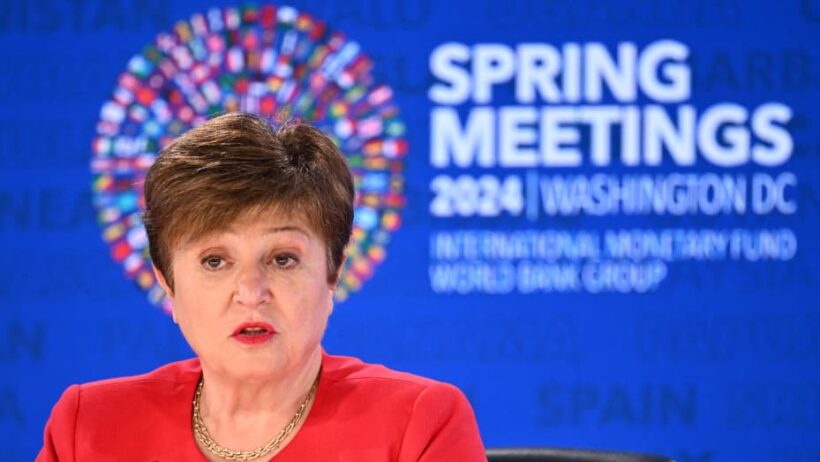
Mandel Ngan | Afp | Getty Images
Kristalina Georgieva, the managing director of the International Monetary Fund, played down the prospect of any negative impact from a monetary policy divergence between Europe and the U.S., but said issues could be more acute in emerging markets.
The benchmark rates of most advanced economies soared in recent years, as central banks aimed to tame inflation following the Covid-19 pandemic. These banks are now looking to bring rates back down as economies cool off, although signals in the U.S. suggest that cuts might still be some months away.
A high U.S. interest rate environment is traditionally bad news for emerging markets, as it makes their debts — often priced in U.S. dollars — more expensive. It can also trigger capital outflows, as investors opt for better returns in the U.S., and can cause much tighter financial conditions.
“It is a much more serious issue for countries where the impact of high interest rates in the United States are more profound — in many emerging market economies,” Georgieva told CNBC’s Silvia Amaro in Brussels on Monday.
“We also see some of this in Japan, and there the attention of policymakers, indeed, has to be sharpened to carefully monitor where the volatilities are becoming more significant. In Europe, this is not the case.”
In the euro zone, she said that “we are not too worried about the exchange rate impact,” adding that the IMF’s analysis showed that the 50 basis points difference between the rates of the U.S. Federal Reserve and those of the European Central bank “is likely to lead to miniscule or 0.1 to 0.2% shift in the exchange rate.”
“And that is to say that here [in Europe] this is not a big issue,” she said.

